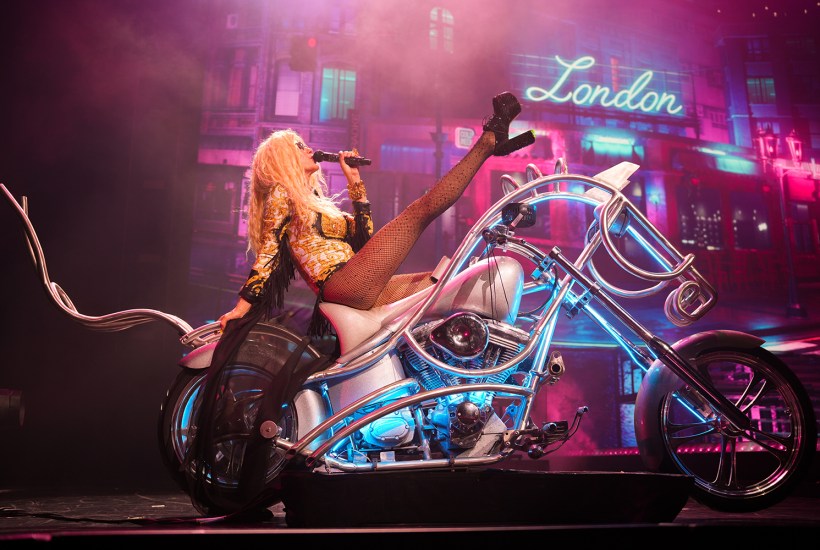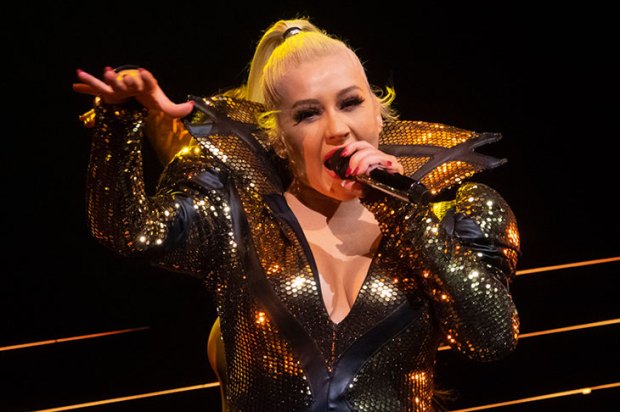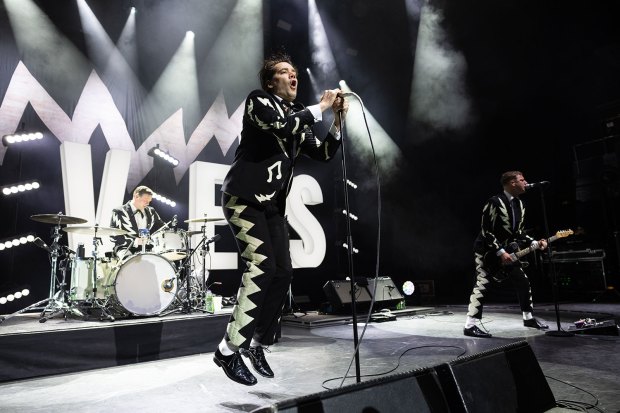Pop critics routinely make the mistake of assuming the most important acts are the ones copied by the groups they like. So to a generation of writers who grew up listening to 1980s and ’90s indie, the Velvet Underground are the second most important group of all time, after the Beatles. Don’t get me wrong, I love the Velvet Underground, and they are hugely important in rock history. But in reality the second most important group in rock history is Van Halen, because for a decade or so the vast majority of hard-rock bands – who in the 1980s were commercially huge – were trying to imitate them in one way or another. Van Halen’s influence dictated what millions of record buyers were actually taking home from the shops, whereas the Velvet Underground’s dictated what 800 people were going to see at ULU on a Friday night.
Shania Twain is country’s Van Halen. The success of her 1997 album Come On Over – the biggest-selling country record ever and the eighth-biggest-selling record by anyone in any genre ever – transformed country music in profound ways. In collaboration with her then husband, the producer Robert John ‘Mutt’ Lange, she made a canny record that was not simply country but more akin to expertly assembled pop-rock with some fiddles on top. (They also released an ‘international version’ that removed the country instrumentation.) Lange had previously made superstars out of AC/DC and Def Leppard, and he brought his skills to bear with laser focus, something Twain continues to acknowledge.
Come On Over is the point at which country ceased to be country, where it started to assimilate other genres, and a quarter of a century on, the biggest country records don’t sound the tiniest bit like George Jones. Taylor Swift no longer has the slightest connection to country, but the records that made her a star before her pivot to pop were explicitly indebted to the Come On Over template. No Shania, no Taylor. That’s how profound and far-reaching Twain’s influence has been, whether or not you believe that to be a good thing.
Her show at the O2 was tremendous fun. She’s rather more human today than she was at her peak – Lange left her for her best friend, whose own ex-husband she then married; she developed Lyme disease and dysphonia, which saw her unable to record between 2002 and 2017. She admitted to me in 2017 that she had been a hard person (her life story, pre-fame, is eyebrow-raising), but divorce had softened her, and while the show was ruthlessly professional, it also radiated joy. And that joy was thrown back at the stage: people don’t half love a survivor.
She’s 58 now, but in a blonde wig, basque and fishnets, she looked two decades younger. Her voice has coarsened, and some of the low notes weren’t great, but it was more than good enough given the spectacle of the show and the force of the band (a rock line-up of two guitars, bass and drums, with one guitarist sometimes swapping to fiddle). And while she’s no one’s idea of a profound lyricist, that’s not really the point – if you can’t get something from songs as simple and well-made as ‘You’re Still the One’, or as witty and effective as ‘That Don’t Impress Me Much’ and ‘Man! I Feel Like a Woman!’, then you should just stick to Sun Ra and having no friends.
Sometimes Lange’s hand in the old songs was blindingly obvious – ‘Honey, I’m Home’ is Def Leppard’s ‘Pour Some Sugar on Me’, with a country chorus – and the new songs, while fun, weren’t the equal of the monster hits. But gosh, I could have watched this show all night.
Sugababes, too, have now become survivors. Like Twain, they have a back story to boggle at. Once the coolest girl group in Britain, they’re now in early middle age, their original line-up reunited under the original name. (They had several years of having to trade as Mutya Keisha Siobhan because they didn’t own the rights to their original band name, which meant no one really took any notice of them.) Middle age rather suits them: the cursory choreography made them appear not so much like hardened arena stars as the cooler mums at the school PTA disco.
Like Shania, they have a handful of songs that are simply beyond dispute, and it really doesn’t matter that most of them have several hundred credited writers, because the trio is what sells them (even if they weren’t all recorded by the same trio. As I say, the back story is boggling). ‘Overload’, ‘Push the Button’, ‘Round Round’ and ‘Freak Like Me’ are among the best British pure pop singles of this century: funny and inventive and sharp as tacks. Maybe the budget wasn’t quite as high as Shania’s but it was awfully nice to have them back.
Got something to add? Join the discussion and comment below.
Get 10 issues for just $10
Subscribe to The Spectator Australia today for the next 10 magazine issues, plus full online access, for just $10.
You might disagree with half of it, but you’ll enjoy reading all of it. Try your first month for free, then just $2 a week for the remainder of your first year.














Comments
Don't miss out
Join the conversation with other Spectator Australia readers. Subscribe to leave a comment.
SUBSCRIBEAlready a subscriber? Log in